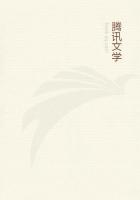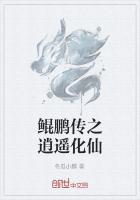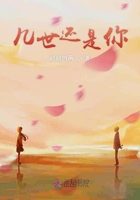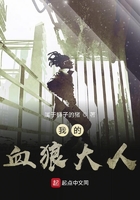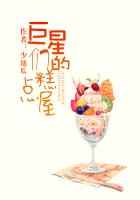As finally arranged this was the order of our march: First went an Abati guide who was said to be conversant with every inch of the way.
Then came Orme and Sergeant Quick, conducting the camels that were loaded with the explosives. I followed in order to keep an eye upon these precious beasts and those in charge of them. Next marched some more camels, carrying our baggage, provisions, and sundries, and finally in the rear were the Professor and Shadrach with two Abati.
Shadrach, I should explain, had selected this situation for the reason, as he said, that if he went first, after what had passed, any mistake or untoward occurrence might be set down to his malice, whereas, if he were behind, he could not be thus slandered. On hearing this, Higgs, who is a generous soul, insisted upon showing his confidence in the virtue of Shadrach by accompanying him as a rearguard. So violently did he insist, and so flattered did Shadrach seem to be by this mark of faith, that Orme, who, I should say, if I have not already done so, was in sole command of the party now that hostilities were in the air, consented to the plan, if with evident reluctance.
As I know, his own view was that it would be best for us four Englishmen to remain together, although, if we did so, whatever position we chose, it would be impossible for us in that darkness to keep touch with the line of camels and their loads, which were almost as important to us as our lives. At least, having made up our minds to deliver them in Mur, we thought that they were important, perhaps because it is the fashion of the Anglo-Saxon race to put even a self-created idea of duty before personal safety or convenience.
Rightly or wrongly, so things were settled, for in such troublous conditions one can only do what seems best at the moment. Criticism subsequent to the event is always easy, as many an unlucky commander has found out when the issue went awry, but in emergency one must decide on something.
The sun set, the darkness fell, and it began to rain and blow. We started quite unobserved, so far as we could tell, and, travelling downward from the overgrown, ruined town, gained the old road, and in complete silence, for the feet of camels make no noise, passed along it toward the lights of Harmac, which now and again, when the storm-clouds lifted, we saw glimmering in front of us and somewhat to our left.
In all my long wanderings I cannot remember a more exciting or a more disagreeable journey. The blackness, relieved only from time to time by distant lightnings, was that of the plagues of Egypt; the driving rain worked through the openings of our camel-hair cloaks and the waterproofs we wore underneath them, and wet us through. The cold, damp wind chilled us to the bone, enervated as we were with the heat of the desert. But these discomforts, and they were serious enough, we forgot in the tremendous issue of the enterprise. Should we win through to Mur? Or, as a crown to our many labours and sufferings, should we perish presently on the road? That was the question; as I can assure the reader, one that we found very urgent and interesting.
Three hours had gone by. Now we were opposite to the lights of Harmac, also to other lights that shone up a valley in the mountain to our right. As yet everything was well; for this we knew by the words whispered up and down the line.
Then of a sudden, in front of us a light flashed, although as yet it was a long way off. Next came another whispered message of "Halt!" So we halted, and presently one of the front guides crept back, informing us that a body of Fung cavalry had appeared upon the road ahead. We took counsel. Shadrach arrived from the rear, and said that if we waited awhile they might go away, as he thought that their presence must be accidental and connected with the great festival. He implored us to be quite silent. Accordingly, not knowing what to do, we waited.
Now I think I have forgotten to say that the dog Pharaoh, to prevent accidents, occupied a big basket; this basket, in which he often rode when tired, being fixed upon one side of Orme's camel. Here he lay peaceably enough until, in an unlucky moment, Shadrach left me to go forward to talk to the Captain, whereon, smelling his enemy, Pharaoh burst out into furious baying. After that everything was confusion.
Shadrach darted back toward the rear. The light ahead began to move quickly, advancing toward us. The front camels left the road, as I presume, following their leader according to the custom of these beasts when marching in line.
Presently, I know not how, Orme, Quick, and myself found ourselves together in the darkness; at the time we thought Higgs was with us also, but in this we were mistaken. We heard shoutings and strange voices speaking a language that we could not understand. By the sudden glare of a flash of lightning, for the thunderstorm was now travelling over us, we saw several things. One of these was the Professor's riding-dromedary, which could not be mistaken because of its pure white colour and queer method of holding its head to one side, passing within ten yards, between us and the road, having a man upon its back who evidently was not the Professor. Then it was that we discovered his absence and feared the worst.
"A Fung has got his camel," I said.
"No," answered Quick; "Shadrach has got it. I saw his ugly mug against the light."
Another vision was that of what appeared to be our baggage camels moving swiftly away from us, but off the road which was occupied by a body of horsemen in white robes. Orme issued a brief order to the effect that we were to follow the camels with which the Professor might be. We started to obey, but before we had covered twenty yards of the cornfield or whatever it was in which we were standing, heard voices ahead that were not those of Abati. Evidently the flash which showed the Fung to us had done them a like service, and they were now advancing to kill or capture us.

